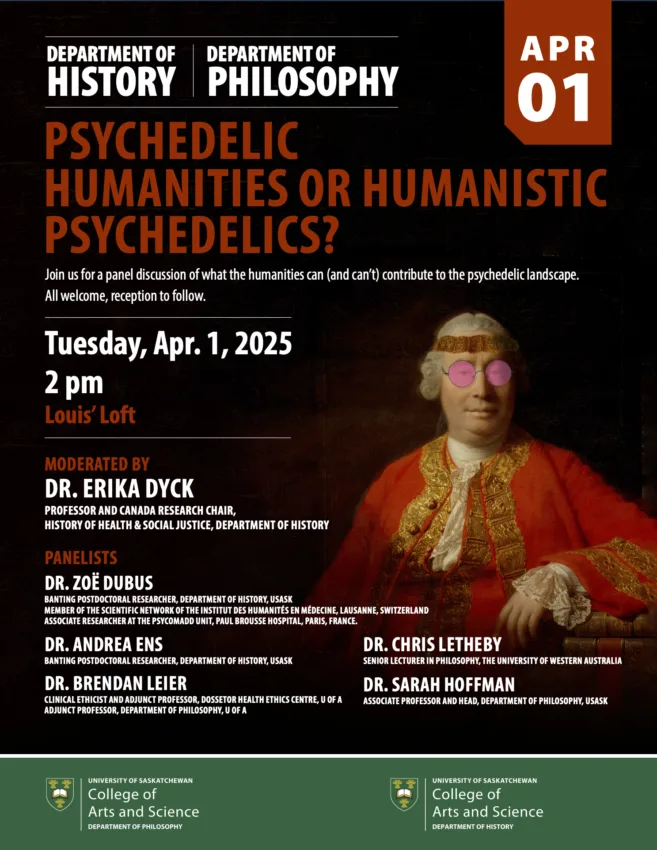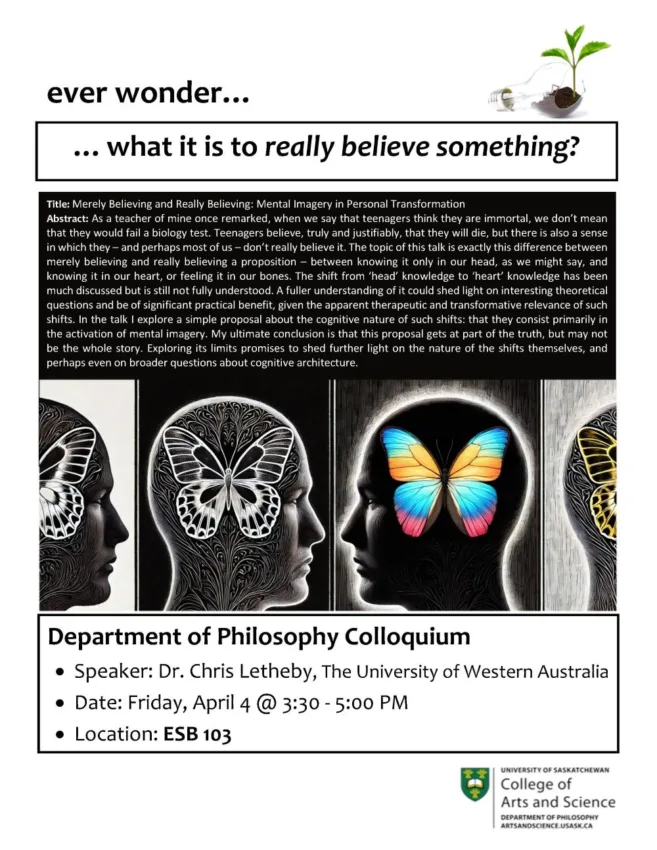Finals got you down? Explore drugs and death (lectures).
As the academic year winds down and you frantically try to finish those readings you swore wouldn’t be on the test, it feels like there’s no time for anything but stress. I get it—you’re buried under essays, or maybe you’re busy sacrificing lab rats because your p-values won’t cooperate. (Alright, I’ll be honest, I have no idea what science students do, but I’ve seen how some of you simultaneously down Starbucks and Monster. My heart goes out to you. God knows you’ll need a new one soon).
Here’s the thing: there are two upcoming events you definitely don’t want to miss. Whether you’re a rat killer or a future barista, there’s something for everyone. From examining the humanities’ role in the psychedelic movement to exploring belief, personal transformation and confronting death, these events promise to spark lively discussions.
And hey, who knows? Reflecting on death might just put things into perspective and provide some unexpected relief from finals anxiety—kind of like pinching yourself after stubbing your toe (except, you know, a little more existential). Or it could send you spiralling. Might as well get it out of the way sooner rather than later.
Psychedelic Humanities or Humanistic Psychedelics?
Date: Tuesday, April 1
Time: 2–5 p.m.
Location: Louis’ Loft
Saskatchewan’s Weyburn Mental Hospital played a pivotal role in psychedelic history. In the 1950s and 60s, Dr. Humphry Osmond, who coined the term “psychedelic,” led early research on LSD and psilocybin to treat mental health conditions like addiction and schizophrenia. Osmond corresponded with Aldous Huxley (author of Brave New World), who took mescaline under the psychiatrist’s supervision. Inspired by the experience, Huxley wrote The Doors of Perception, inspiring Jim Morrison’s band, The Doors. How’s that for a landlocked tundra in the middle of nowhere?
Psychedelics have long been a subject of scientific and medical inquiry, but what role do the humanities play in shaping our understanding of these substances? This question will lie at the heart of an upcoming panel discussion moderated by Dr. Erika Dyck, professor and Canada Research Chair in the History of Health & Social Justice at the University of Saskatchewan. If you’re interested in Saskatchewan’s medical and psychedelic history, you’ll want to check out Dr. Dyck’s bibliography here.
The interdisciplinary panel will bring together distinguished scholars to discuss the ethical, historical and philosophical dimensions of psychedelics. Panelists include:
The panel will examine the contributions and limitations of the humanities—philosophy, ethics and history—in informing and shaping contemporary discussions on psychedelics, their medical applications and their cultural significance. For those intrigued by altered states of consciousness, the ethical considerations of psychedelic-assisted therapy and the historical context of these substances, this is a must-attend event.

Merely Believing and Really Believing: Mental Imagery in Personal Transformation
Date: Friday, April 4, 2025
Time: 3:30–5:00 p.m.
Location: ESB 103
One day, you will die. You understand this, of course, but how deeply do you really believe it? In order to get anything done, you must put this thought out of your mind. But what is it, exactly, that you hope to accomplish? And why? If you asked the anthropologist Ernest Becker, he would say that you are driven by a desire to flee from the deepest fear that we all share.
In his 1973 book The Denial of Death, Becker writes “The idea of death, the fear of it, haunts the human animal like nothing else: it is a mainspring of human activity—activity designed largely to avoid the fatality of death, to overcome it by denying in some way that it is the final destiny for man.” Yet, Becker suggests that “To live fully is to live with an awareness of the rumble of terror that underlies everything.”
Dr. Letheby’s lecture on belief and personal transformation bridges cognitive science, philosophy and psychology, but its themes—how people internalize knowledge and shift their perspectives—resonate with anyone interested in personal development and self-knowledge. Exploring the distinction between intellectual knowledge and deeply internalized belief, the lecture abstract reads:
“As a teacher of mine once remarked, when we say that teenagers think they are immortal, we don’t mean that they would fail a biology test. Teenagers believe, truly and justifiably, that they will die, but there is also a sense in which they – and perhaps most of us – don’t really believe it. The topic of this talk is exactly this difference between merely believing and really believing a proposition – between knowing it only in our head, as we might say, and knowing it in our heart, or feeling it in our bones. The shift from ‘head’ knowledge to ‘heart’ knowledge has been much discussed but is still not fully understood. A fuller understanding of it could shed light on interesting theoretical questions and be of significant practical benefit, given the apparent therapeutic and transformative relevance of such shifts. In the talk I explore a simple proposal about the cognitive nature of such shifts: that they consist primarily in the activation of mental imagery. My ultimate conclusion is that this proposal gets at part of the truth, but may not be the whole story. Exploring its limits promises to shed further light on the nature of the shifts themselves, and perhaps even on broader questions about cognitive architecture.”

Both events offer a chance to explore groundbreaking ideas in philosophy, history, and psychology. Whether you’re drawn to the humanities’ role in the psychedelic renaissance or curious about the nature of belief and personal transformation, these discussions will push you to rethink what you know and offer fresh perspectives—just the kind of break we all need as finals loom.
Leave a Reply